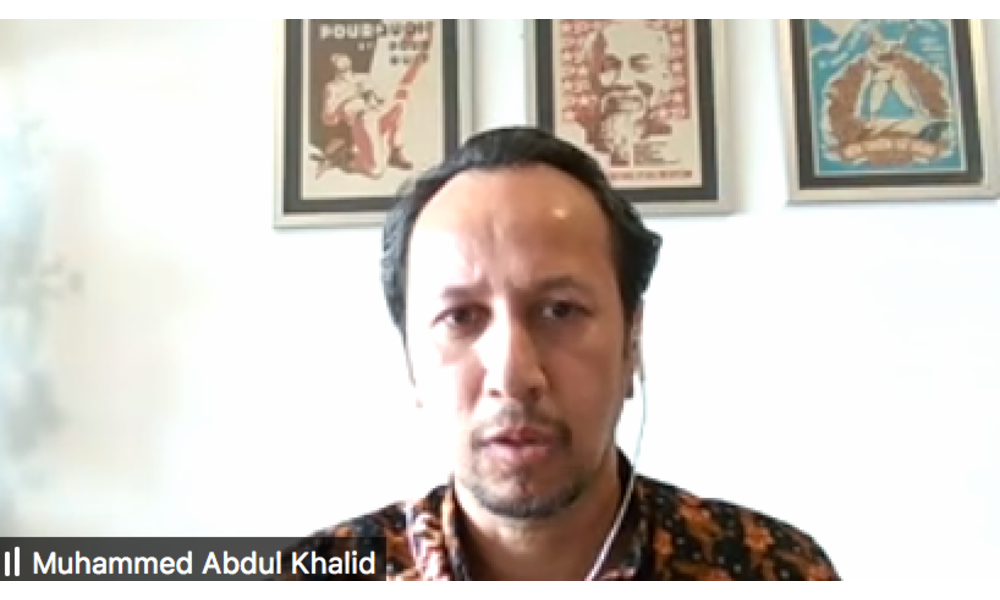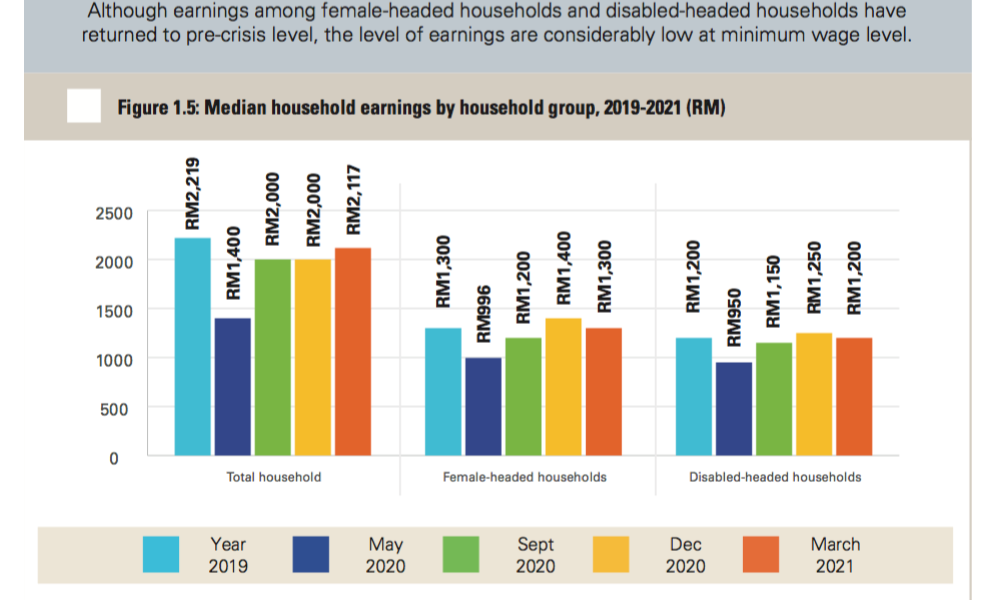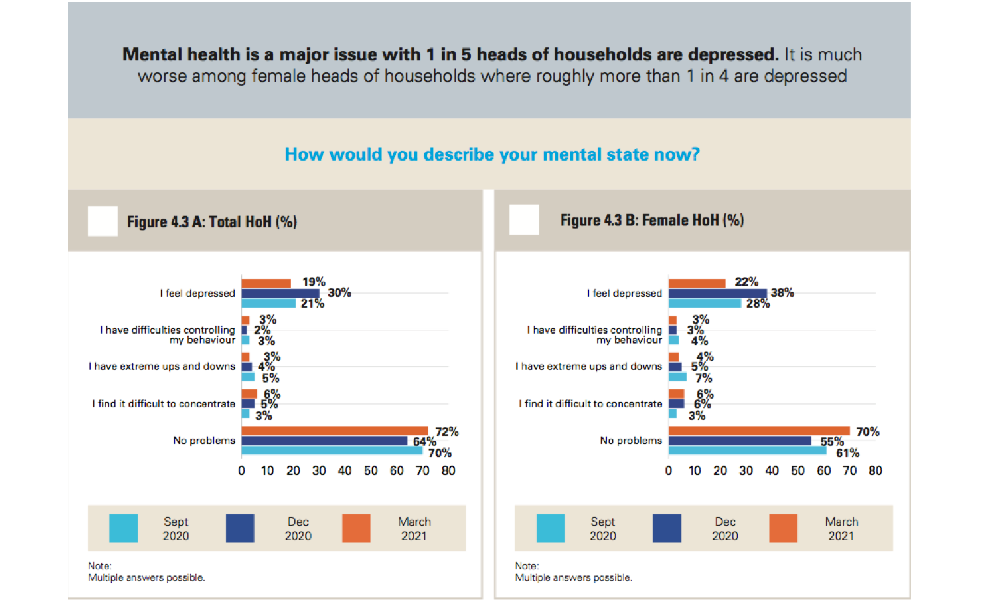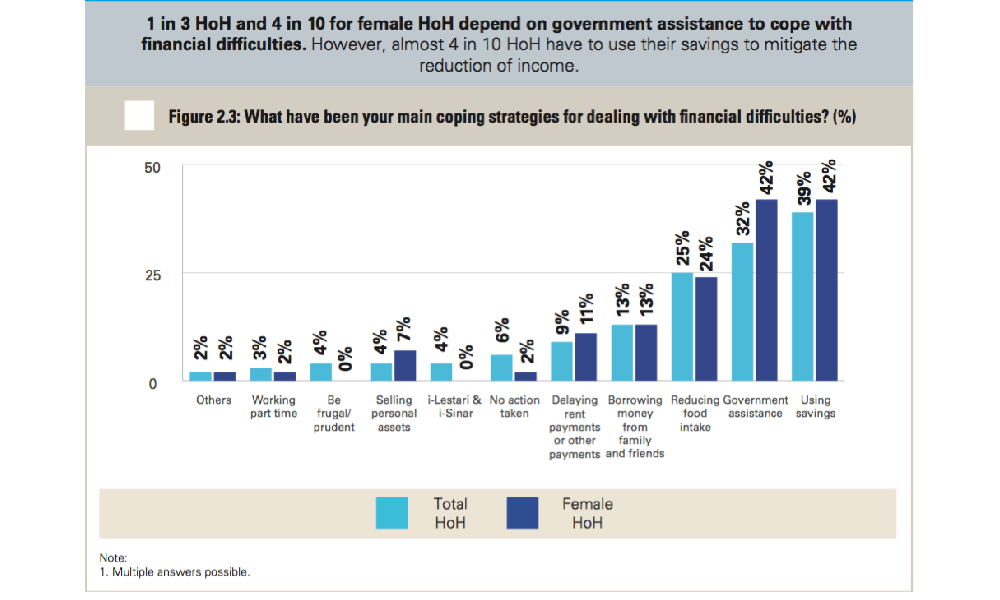With the recent nationwide movement control order (MCO 3.0), a prominent economist has urged the government to provide immediate assistance to families who have been living on the edge for over a year.
Without help, Muhammed Abdul Khalid was concerned the poor would fail to cope under the compounded effects of reduced income, school closures, and psychological pressure.
Speaking in an online panel today, he presented a survey that found about four in 10 urban poor families had dipped into their savings to survive.
This was despite having already received government assistance like the Bantuan Prihatin Nasional (BPN).
“When we imposed MCO 1.0 and 2.0, there was a lot of government assistance - there was the loan moratorium, cash assistance, grants for small businesses, and wage subsidies. For low-cost flats (PPR) there were rental exemptions and rental discounts.
“It has already been one year, they have already used up all the savings and we know they borrowed money. This MCO 3.0 will have a dire impact, I shudder to think what will happen.
“The introduction of MCO 3.0 should be accompanied with continued assistance,” he proposed.
The nationwide MCO, which begins tomorrow (May 12) until June 7, forbids social activities but allows most economic sectors to operate.
Putrajaya has yet to announce a financial stimulus plan like it did for the previous MCOs.

Muhammed formerly headed the Khazanah Research Institute and was the economic advisor to previous prime minister Dr Mahathir Mohamad.
Many feel depressed
The survey was part of the fourth and final Families On The Edge report titled “Two steps forward, one step back: The new normal for Malaysia’s urban poor?”.
Conducted by Muhammed’s think tank DM Analytics Malaysia for Unicef and UNFPA Malaysia, the study looked at the impact of the Covid-19 pandemic on 500 families living in PPRs in Kuala Lumpur as of March 2021.
Though it had improved since a year ago, the unemployment rate among these households continued to be much higher (12 percent) than the national average (4.8 percent).
This was especially in households headed by a person with disabilities (27.8 percent) or a woman (15.9 percent).
A similar trend was observed in median household income.

For households with school-going children, an overwhelming majority preferred if they went to school rather than attend online classes from home.
This was mainly because children struggled to focus due to a lack of space (49 percent), adults were unable to supervise children (43 percent), and a lack of devices (23 percent).
For the children in these households, the survey found that a majority had either lost focus (78 percent) or lost interest (61 percent) in their studies.
Again, this was worse in female-headed households.
Female-heads of households also said they were more afraid at this point in the pandemic of not being able to earn enough to provide food for their children (50 percent), enable their children to access proper education (39 percent), and save enough money for retirement (35 percent).
All these stressors appeared to be taking a toll on their mental state, with about one in four (28 percent) female heads of households saying they felt depressed.

As a whole, one in five (21 percent) of the heads of these urban poor households said they felt depressed.
Many need cash aid
The survey also looked at the impact of government assistance on these households. Four in 10 (42 percent) said they still needed BPN cash aid.
18 percent said they needed cash assistance from the Employees' Provident Fund (EPF), from the Social Welfare Department (18 percent), and from the Federal Territories Islamic Council (13 percent).
When asked about their main financial coping strategies, the top two answers were their own savings (39 percent) and government assistance (32 percent).
About one in four (25 percent) of households said they coped by reducing their food intake.

- Mkini



No comments:
Post a Comment
Note: Only a member of this blog may post a comment.